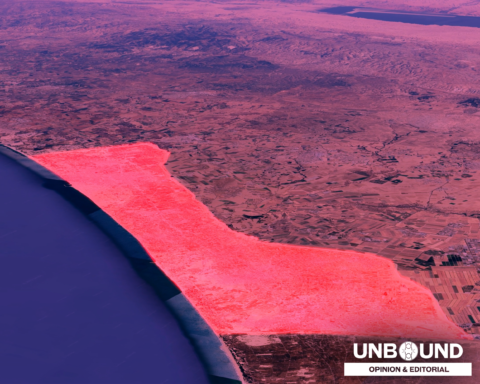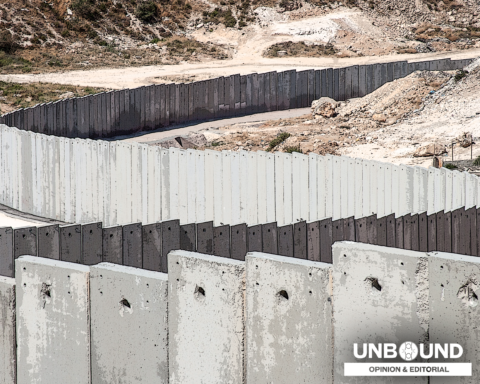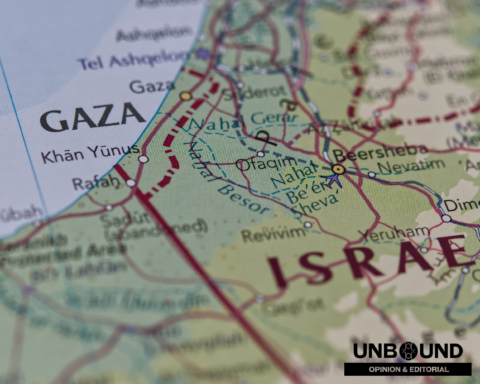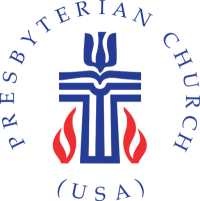 Below are descriptions of each piece of business, divided into categories by topic. Each item number links to the full text of the resolution on pc-biz.org, along with all official comments that have been submitted.
Below are descriptions of each piece of business, divided into categories by topic. Each item number links to the full text of the resolution on pc-biz.org, along with all official comments that have been submitted.
Abbreviations Used:
ACREC—Advocacy Committee for Racial Ethnic Concerns
ACSWP—Advisory Committee on Social Witness Policy
ACWC—Advocacy Committee for Women’s Concerns
BDS—Boycott, Divestment, and Sanctions (toward Israel); this is a movement founded by Palestinians
CPJ—Compassion, Peace and Justice, a department of PMA.
IPMN—Israel-Palestine Mission Network
JCPOA—Joint Comprehensive Plan of Action (aka “The Iran Nuclear Deal”)
PDA—Presbyterian Disaster Assistance, a part of the CPJ Department of PMA.
PMA—Presbyterian Mission Agency
Commissioners’ Resolutions
[12-10] Speaks to the violent response to the “Great March of Return” from Gaza and calls for an end to the blockade of Gaza.
ACSWP recommends approval, calling the resolution “a timely call to prayer and action regarding the ongoing violence in the border area between Israel and the Gaza strip.”
[12-11] Encourages PC(USA) congregations to “support grassroots organizations who are having success bringing together Israelis and Palestinians to build understanding and peace.” The resolution also “Encourage[s] all to avoid describing grassroots peacemaking efforts as “normalization of an unjust situation.”
ACSWP recommends disapproval, writing that the resolution “sets up a false dichotomy between policy and grassroots action… and casts unmerited aspersions upon the staff and agencies of the General Assembly.”
PMA likewise disapproves the resolution:
“It is not clear from the Rationale who these grassroots organizations that we are supposed to be supporting are, as no examples are given. The resolution is also misleading in suggesting that “at the General Assembly level, the staff and agencies have not been interested in supporting grassroots reconciliation efforts” as that is very much at the heart of our work. This is demonstrated by our partnership with such bodies as the Tantur Ecumenical Institute, Mar Elias Educational Institutions, the Wi’am Conflict Transformation Center, the Jerusalem Center for Jewish-Christian Relations, and The Inter-Religious Coordinating Council, all of which are involved in facilitating grassroots encounters, better understanding, and reconciliation. Unfortunately, there are other organizations at work that purport to be promoting “reconciliation,” but in fact they are actually seeking to normalize or provide a gloss on what is a very unjust situation, and for that reason we would not work with them.”
[12-12] Rejects the label of Israel as “a colonial project” and instructs agencies and staff of the PC(USA) to avoid language implying such. Mandates a halt to the distribution of the Israel-Palestine Mission Network’s “Why Palestine Matters: The Struggle to End Colonialism.”
ACSWP points out that Why Palestine Matters specifically states that IPMN speaks “to the church, and not for the church,” and advocates disapproval of the resolution as “unnecessary restrictions on the free exchange of ideas among Presbyterians of good conscience.”
ACREC similarly advocates disapproval, “because censoring or censuring a mission network of World Mission faithfully carrying out their GA mandate is counterproductive.”
PMA notes that stating “Israel is not a colonial project” would be a new position that the resolution fails to justify:
“How is the continued expansion of settlements on Palestinian land not a form of colonialism? Or, how is shooting at thousands of unarmed civilians trying to return to their homes and lands that were taken from them seventy years ago not a form of colonialism. Or, returning to modern day Israel’s origins in the Balfour Declaration of 1917, a statement made by the British Foreign Secretary, Lord Balfour, at the height of the British Empire, expressing how Britain would exercise its mandate in Palestine not “a colonial project”? These are the questions we will be asked if we approve this position.”
[12-13] Opposes disengagement from the Joint Comprehensive Plan of Action (JCPOA), colloquially known as the “Iran Nuclear deal.”
ACSWP and ACREC both recommend approval, with ACSWP recommending additional language that cites Christian Obedience in a Nuclear Age (1988) in its call for multilateral engagement. ACREC states: “By withdrawing from any peace negotiation in the Middle East, we are negatively impacting the life of Christian minorities who usually become the scapegoat (easy target) for such unwise actions taken by western nations.”
Responding to Anti-BDS Legislation
[12-01] Opposes Anti-BDS legislation, justifying this opposition within the context of the First Amendment and instructing the Stated Clerk to file amicus curiae briefs in court cases challenging state anti-BDS statutes.
ACSWP recommends approval, noting that PC(USA) “has a robust history of engaging in boycotts of particular products for various reasons, divesting from companies whose actions are in conflict with the mission of the Presbyterian Church (U.S.A.), and supporting governmental sanctions based upon human rights violations and other actions […] Regardless of whether the Presbyterian Church (U.S.A.) ever chooses to endorse or to reject the BDS movement to end the occupation of Palestine, the Presbyterian Church (U.S.A.) has a stake in affirming the right of any organization or individual to engage in nonviolent protest.”
ACREC goes even further, affirming the integrity of BDS to say: “Boycott, Divestment, Sanctions (BDS) is a Palestinian-led movement for freedom, justice, and equality. BDS upholds the simple principle that Palestinians are entitled to the same rights as the rest of humanity.”
Syrian Crisis
[12-09] Responds to the war in Syria by focusing on having the church engage in ways to help end the killing. The overture also pays special attention to the plight of the Syrian Christian population, and seeks to deepen the PC(USA) connection to Syrian Christians.
ACREC recommends approval, noting the major role of the United States in the war in Syria and noting the 22nd GA’s 2016 affirmation of the need to support Christians in the Middle East.
PMA recommends “following the United Nations’ lead on the Syrian peace process” and notes that PDA is engaged in disaster relief that includes helping in the resettlement of refugees.
Human Rights in Israel-Palestine
[12-02] Human Rights of all citizens of Israel
This overture re-affirms PC(USA) support for the UN Universal Declaration of Human Rights and directs the OPW to urge the US government to suspend all economic and military aid to Israel until Israel is in full compliance with that document, along with parallel efforts by the Stated Clerk and PMA.
ACSWP recommends approval, drawing attention to Israel-Palestine: For Human Values in the Absence of a Just Peace (2016).
ACREC also recommends approval, adding additional citations: Breaking Down the Walls (2010) and On Advocating for the Safety and Well-Being of Children of Palestine and Israel (2016).
[12-06] Condemns “certain actions that endanger children in Israel-Palestine.”
The overture writes to protect children; however, advisory and advocacy groups dispute the veracity of individual assertions made within the overture.
ACSWP recommends disapproval, pointing out out that many of the citations in the overture are poorly sourced, using secondary opinion sources and “misleadingly or inaccurately” using primary data from UNICEF to suggest fault on the part Palestinians when, instead, it the report describes the treatment of children under Israeli military detention.
ACREC also recommends disapproval, noting aspects of the situation in Gaza ignored by the overture.
PMA recommends disapproval, noting that the “conflation of Hamas with Palestine is misleading, and wrong.”
Territory in Israel-Palestine
[12-07] Urges RE/MAX to “stop facilitating the sale and rental of property in Israeli settlement colonies in East Jerusalem and the West Bank.”
ACSWP and ACREC both advise approval of the overture, noting that colonization of the occupied Palestinian territories is illegal under international law and opposed by PC(USA) policy.
[12-08] Directs ACREC, ACSWP, and the Office of the Presbyterian Ministry at the U.N. to report on UN plans and the current status of the City of Jerusalem, as well as to make policy recommendations relating to the free access to religious sites in Jerusalem and Bethlehem.
ACSWP “advises support for this focused study based on the steady deterioration of the legal status of Palestinians in general in Jerusalem, and the extreme pressure put on Christians and Christian institutions by changes in tax law and other aspects of annexation.” It identifies the PC(USA)s goal of ensuring that Christianity, Judaisim, and Islam may all continue their witness in Jerusalem.
Jewish-Christian Dialogue
[12-05] Emphasizes honest, free, and bold dialogue with Jewish colleagues as relates to the Israel-Palestine.
The resolution emphasizes that criticism of the laws and practices of the state of Israel can be (and generally is) accompanied by strong support of Israel’s right to exist.
ACSWP and ACREC both recommend approval of the overture, identifying that tough questions and truths around Israel-Palestine are often eschewed (ACSWP) and long overdue (ACREC).
Responding to the National Coalition of Christian Organizations in Palestine (NCCOP)
[12-03] Creates a 12-person task force to examine the NCCOP’s nine-part call to ecumenical solidarity; invites further related ecumenical dialogue with the WCC.
[12-04] Creates a similar task force (size unspecified) and makes a similar call to ecumenical dialogue, adding instruction to the Stated Clerk to invite and encourage such ecumenical dialogue.
ACSWP writes on [12-03], to answer both: “The Presbyterian Church (U.S.A.) is already responding […] to the heartfelt and incisive letter from the Palestinian Christians and does not want any of its already affirmative responses slowed by the task force proposed, given that current policy supports action on the nine points.” For that reason, ACSWP recommends line edits that affirm the work already being done and encourage increasing that work, instead of creating a task force to first study the statement. ACSWP also points to the [12-08] overture on Jerusalem as an item which does require a task force for study.
ACREC recommends approval of [12-03] and [12-04], writing on the latter: “This is a well-written and reasoned overture that seeks to open an honest dialogue with Jewish colleagues regarding the behavior of the Government of Israel towards its Palestinian citizens whether in Israel or the occupied territories. For too long, the fear of being labeled “anti-Semitic” has muzzled true, open, and meaningful dialogue concerning the denial of justice for Palestinians.”
PMA “feels that the recommendation to create a task force may be unnecessary to fulfill the intent of this overture because we have already responded to NCCOP’s call issued in June 2017. As part of a solidarity visit to Palestinian Christians in Advent 2017, a delegation from the PC(USA), led by the Stated Clerk, met with representatives of the NCCOP to discuss this June call, and in line with existing policy statements and actions of General Assembly reaffirmed our support for the Palestinian Christian community. By the same token, when events earlier in the year suggested that the WCC’s commitment to the Palestinian community was wavering (events that led to the NCCOP’s open letter), the Stated Clerk wrote to the WCC expressing our resolve to stand firm alongside our Palestinian sisters and brothers, and encouraged them to do the same, and we remain in partnership with them to that end.”
***
This outline was compiled by Henry Koenig Stone, who serves in Louisville, KY as current Managing Editor of Unbound and as Associate for Young Adult Social Witness (staff to ACSWP). Henry holds a B.A. in Economics (2015) from the University of Chicago and an MPP (2017) from UChicago’s Harris School of Public Policy. His past work has focused on policy analyses of healthcare pilot programs and public health systems.






Unbound Social